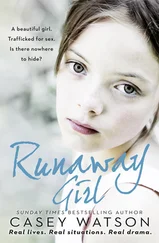Susan Stamberg: So how was it? How did you then, Howard Norman, arrive at the idea that you, in fact, would go back to the house?
Howard Norman: I think that happened fairly quickly, actually. We agreed relatively quickly that this was visited upon us. It wasn’t something whose source was our life, and that you don’t let someone else’s demon, if you will, chase you out. I came down a couple of days early, and I will say that it was a powerful feeling, to step into the house. The sense of relief at seeing the familiar life was quite astonishing, really, because one doesn’t always like where one’s imagination goes and the projection of it.
Susan Stamberg: And so it was so much more terrifying to think about it while you were out of town than to go back to what still was very much your house.
Truth be told, I scarcely knew Reetika Vazirani, and scarcely knew her son, Jehan, either. So if the word healing is applicable to working through the consequences of an act of unspeakable brutality, it wouldn’t be associated with grieving. Grief is reserved for loved ones. In this situation, healing was about other imperatives, such as reclaiming the violated interior spaces of heart and home, and gaining some perspective, in order to temper, if not erase, the harrowing images of what a person, Reetika Vazirani, suffering the consuming rages and ravages of depression, was capable of doing to her child and to herself, and of visiting upon my house.
Years earlier, and just days after we’d begun living in that house, I was attaching a mezuzah to the frame of the front door when Monsignor Duffy, of the Church of the Blessed Sacrament, whose rectory was next door — the church itself was across the street — dropped by to ask if I’d give a lecture before his Catholic Book Club on the subject of “both real and delusional guilt in the novels of Graham Greene. I’d like a Jewish writer’s perspective on a Catholic writer’s philosophy, played out in the actions and thoughts of his characters.” I told him that my lack of comprehension of this subject could only fail his book club. He let it go at that.
The bells of the church rang every fifteen minutes, seven A.M. to seven P.M., and of course more frequently on Sunday mornings, Christmas, Easter, and around weddings and funerals. I soon developed an antagonistic relationship with those bells. A friend described me as being like Quasimodo in The Hunchback of Notre Dame, up in the bell tower clamping his hands over his ears. The thing was, I was trying to get some writing done, needing several uninterrupted hours each morning, but the bells constructed never-changing allotments of time, often imposing a sense of anxiety on potentially meditative intervals. Jehan liked the bells, but they didn’t always let him settle into a good nap, wrote Reetika Vazirani in a journal. Anyway, just now I’m thinking of something my therapist said: “Filicide strikes the deepest chords.”
I wish I didn’t have this subject to write about; every word will come out awkwardly and not suffice. But the fact is, the medical examiner determined that on July 16, 2003, Reetika Vazirani, a poet and forty years old, stabbed her son in the neck, chest, and forearm, damaging his blood vessels, lungs, and heart. Therefore, this was not, as the Indian poet Kabir wrote, “a gentle transport into the next world.” And at that moment, too, a father, Yusef, lost his son — you wake up, as the Urdu poet Ghalib wrote, to find a demon standing on your heart. Next, Reetika Vazirani, by any definition, more gently transported herself.
How to talk about such a thing? Here I take as much inspiration as I possibly can from what Yasunari Kawabata wrote: “When speaking of those who take their own lives, it is always most dignified to use silence or at least restrained language, for the ones left most vulnerable and most deeply hurt by such an occurrence can feel oppressed by the louder assertions of understanding, wisdom and depth of remorse foisted upon them by others. One must ask: Who is best served by speculation? Who is really able to comprehend? Perhaps we must, as human beings, continue to try and comprehend, but we will fall short. And the falling short will deepen our sense of emptiness.”
And yet sometimes I could not use restrained language.
“Reserving judgments is a matter of infinite hope,” F. Scott Fitzgerald wrote. Still, I had to subscribe to some initial ways of looking at what had happened. To that purpose, the most incisively spiritual thing I read was a response by the poet Rita Dove to a journalist asking about Reetika Vazirani: “She couldn’t find her way back to herself.” And the most ethically useful thing was offered by David Mamet, who had driven over to our farmhouse in Vermont: “If you are walking down the road and you look up ahead and see a house on fire, if you are a good person you don’t wish for it to be someone else’s house.” The essence of altruism in this felt meaningful, but I said to David that given the waking nightmare of a child murder, and the bewildered sobbing in my farmhouse, it was very difficult to feel much like a good person. He stayed for dinner to talk about it.
The summer had just been going along. Then on July 16, my family and a friend, Alexandra, had been to Montpelier, a twenty-minute drive from the farmhouse, for dinner at a restaurant. It was a balmy evening, and I remember pulling the car up to the house in dusky light and seeing a kestrel heliotroping over the slope of a dandelion-filled field, halfway between the garden along the stone wall and my writing cabin. Once inside the house, I lingered in the kitchen while Jane and Emma went upstairs to watch a movie. I’d intended to carry coffee and chocolate mints upstairs.
That’s when I noticed the message light blinking on the telephone on the wall next to the pantry. It was one of those machines capable of archiving far more messages than one would normally receive during a few hours’ absence from home. I pressed the button, put the receiver to my ear, and heard, “You have fifty-three messages.” I got a bad feeling. I immediately poured a shot of Scotch; this could not be good news. Then, after hearing five police messages and one from friends, I went upstairs. Telling Jane, and aware that in the telling I would cause sadness, was like gasping for air. We waited until the next day to sit down with Emma and tell her what had happened.
Our dear friend Stanley drove up for a visit. Emma’s pal Caitlin flew up and stayed for a week. Many wonderful people called from all over. It was a shocking irony to find out that in Washington, D.C., hearing the early reports of the incident in the distracted way we all take in local television news, a few people thought it was us who’d been murdered. In the face of this, my desperate, stupid joke was, well, if that had been the case, would I have answered the phone? I supposed I wanted to hear the relief in their laughter. But of course we were confused, discombobulated, our lives thrown radically off-kilter, and for weeks and weeks we had terrible, insomniac nights.
In the days that followed, the quotidian also served as blessed distraction: errands, house projects, Emma’s Shakespeare rehearsals, city friends up for a visit, walks on the dirt road, swimming in ponds, attempting to write, the ten thousand things of daily life. But on some very basic level, an air of eerie if abstract preoccupation pervaded, and much of the emotional dimensions of familiar life had become unfamiliar. We were self-consciously aware of our need day by day to calibrate, adjust, and maintain our equilibrium. We carefully set about doing this. There were friends and laughter on those days and evenings. But at the same time, we held an ongoing vigil against despair, and as resourceful as we were, we knew we were amateurs up against a monstrosity. Falling apart, gathering life together, falling apart, gathering.
Читать дальше












